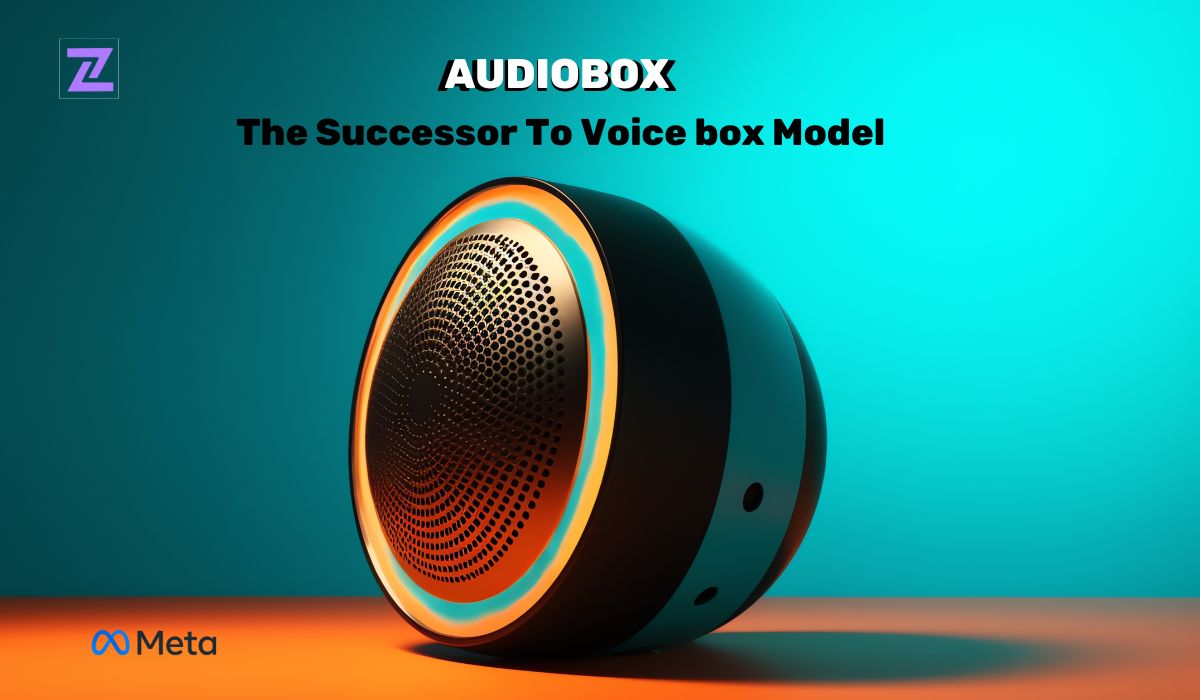
In a remarkable evolution of generative AI, Meta, formerly known as Facebook, has unveiled Audiobox, the successor to its groundbreaking Voicebox model. Audiobox sets out to redefine the landscape of audio generation by seamlessly integrating natural language prompts, opening up new possibilities for creators and enthusiasts alike.Here we delves into the features, capabilities, and the responsible AI approach Meta has taken with Audiobox.
Unleashing the Power of Audiobox:
Building on the success of Voicebox, Audiobox takes generative AI for audio to new heights by combining generation and editing capabilities for speech, sound effects, and soundscapes. What distinguishes Audiobox is its unique approach to user interaction—allowing individuals to describe the desired audio through natural language prompts. Whether it's crafting a serene soundscape or generating distinct speech patterns, Audiobox brings unprecedented flexibility to audio creation.
Natural Language Prompts:
Audiobox introduces a game-changing feature—natural language prompts. Users can now articulate the sounds they envision by simply providing text prompts. For instance, generating a calming soundscape can be initiated with a prompt like, "A running river and birds chirping." Similarly, for speech generation, users can input prompts such as, "A young woman speaks with a high pitch and fast pace." Audiobox stands out as the pioneer in enabling dual input, incorporating both voice and text prompts for freeform voice restyling.
Audiobox's State-of-the-Art Controllability:*
In extensive tests, Audiobox showcases unparalleled controllability in speech and sound effects generation. Surpassing previous models, including AudioLDM2, VoiceLDM, and TANGO, Audiobox excels in both quality and relevance. Notably, it outperforms its predecessor, Voicebox, by over 30 percent in style similarity across various speech styles.
The Motivation Behind Audiobox:
Recognizing the fundamental role of audio in diverse forms of media, Meta unveils Audiobox with a commitment to democratizing audio creation. Traditionally, producing high-quality audio demanded expertise in sound engineering, foley, and voice acting—a barrier that Audiobox seeks to break down. The release is initially directed towards a select group of researchers and academic institutions with a proven track record in speech research.
Audiobox's Diverse Capabilities:
Built on the Voicebox framework, Audiobox boasts an expanded repertoire of sounds, encompassing speech in different environments and styles, non-speech sound effects, and intricate soundscapes. The integration of text and voice inputs significantly enhances controllability, setting Audiobox apart from its predecessor. With Audiobox's infilling capabilities, users can refine sound effects, adding layers of complexity to their audio creations.
Collaboration for Responsible Research:
In an era where responsible AI development is paramount, Meta invites collaboration with a select group of researchers and institutions. The goal is to advance the state of the art in audio generation and address the ethical implications associated with this technology. By extending invitations to those with expertise in speech research, Meta ensures a diverse and responsible approach to the evolution of Audiobox.
Implementing Audiobox Responsibly:
Acknowledging concerns related to voice impersonation and potential abuses, Meta incorporates cutting-edge technologies in Audiobox. Both the model and the interactive demo feature automatic audio watermarking, ensuring that any audio created with Audiobox can be traced back to its origin. This imperceptible signal, detectable at the frame level, provides robust protection against misuse.
The interactive demo also includes a voice authentication feature, akin to CAPTCHAs on websites, deterring impersonation attempts. Users are required to speak a voice prompt using their own voice at regular intervals, making it exceptionally challenging to introduce pre-recorded audio for impersonation.
Ensuring robustness across different speaker demographics, Meta tested Audiobox's performance on speakers of varying genders and native languages, confirming consistent performance across all groups.
Future Use Cases for Audiobox:
Looking ahead, Meta envisions a transition from specialized audio generative models to generalized models capable of generating any type of audio. Audiobox represents a crucial step toward democratizing audio generation, simplifying the process for creators across domains. From content creation and sound editing to game development and AI chatbots, Audiobox's capabilities promise a future where audio creativity knows no bounds.
Audiobox emerges as a revolutionary tool in the realm of audio generation, showcasing Meta's commitment to innovation and responsible AI development. By combining natural language prompts with state-of-the-art controllability, Audiobox opens doors to a new era of creativity. As we witness the democratization of audio creation, Audiobox stands as a testament to the endless possibilities that lie at the intersection of AI and audio technology. Meta's pledge to responsible research and collaboration ensures that Audiobox's impact is not only groundbreaking but also ethically sound, marking a significant milestone in the journey of AI-driven audio generation.